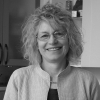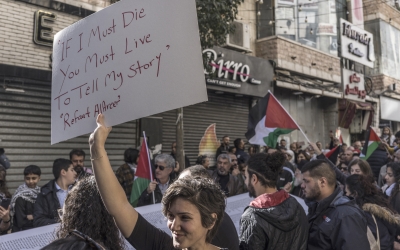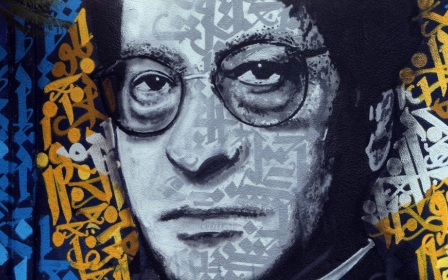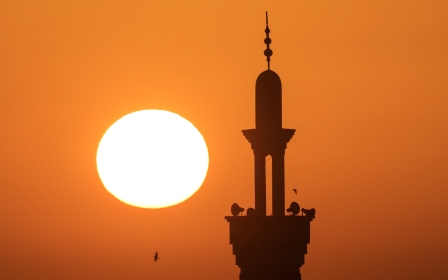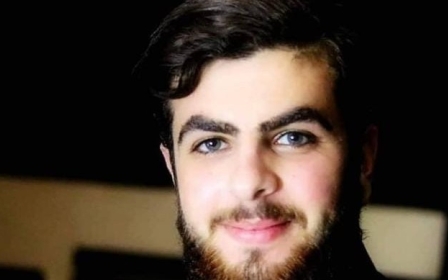Voices of Resilience: Palestinian artists recount life, birth and a year of sorrow in Gaza
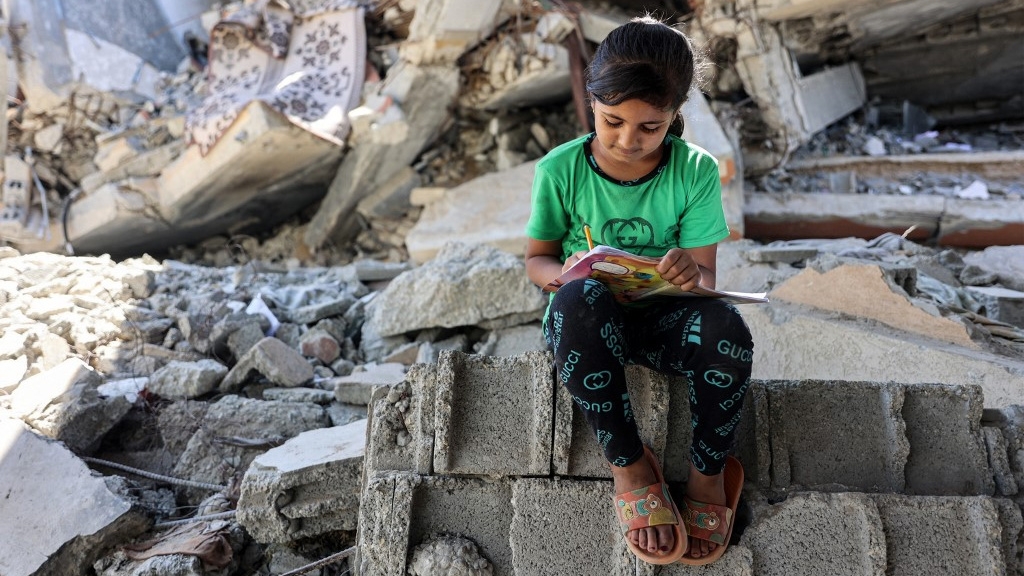
As Israel’s genocide in Gaza grinds on, the Palestinian territory’s poets, playwrights, novelists and filmmakers continue to create beauty in the most extreme circumstances.
Last month, one of London’s most prestigious arts venues, the Barbican, offered a unique performance called Voices of Resilience that showcased some of these talents. It included diary excerpts from several Gaza-based writers, along with music and a poignant film background.
The evening opened with a poem by Hiba Abu Nada, a 32-year-old writer who was killed in an Israeli air strike last October.
It begins: “In our lungs is a homeland and on our breath an exile, a homeland that rushes in our veins as our footsteps edge towards it. It grows in the groves of sorrow, a vine of strangers, glances like tears hanging. It gifted us its tune, and gave up all the singing.”
Abu Nada’s poem was read aloud by Palestinian writer Hind Shoufani, best known for co-writing the award-winning 2020 short film The Present.
New MEE newsletter: Jerusalem Dispatch
Sign up to get the latest insights and analysis on Israel-Palestine, alongside Turkey Unpacked and other MEE newsletters
In her diary, the day before Israel bombed her home, Abu Nada wrote: “My friend list is shrinking, turning into little coffins scattered here and there.
“I cannot catch my friends after the missiles, as they fly off. I cannot bring them back again nor can I pay my condolences nor can I cry. I don’t know what to do. Every day it shrinks further, these are not just names, these are us only with different faces, different names.”
'Today was going to be a good day'
Voices of Resilience takes the audience back to 7 October 2023, as author Atef Abu Saif (portrayed by Nabil Elouahabi) takes a swim in the sea, and writer Sondos Sabra (played by Yusra Warsama) participates in the cherished autumn tradition of olive-picking with her family on her grandfather’s land.
Sabra’s diary entry opens with: “It’s raining. I love rainy mornings,” as her family leaves on their excursion, laden with ladders, mats and cooking pots.
Later, as they hear explosions, her little sister’s screams of terror trigger her own childhood memories of the 2008-09 Israeli war on Gaza, which killed around 1,400 Palestinians. On the first day of that war, Sabra was in school for an exam.
Follow Middle East Eye's live coverage of the Israel-Palestine war
“I wanted a hug from my mother. I remember needing it so badly,” she wrote. “So today I don’t leave Fatima for a moment.”
In Abu Saif’s diary entry, he begins: “I never thought it would happen while I was swimming. Today was going to be a good day, I told myself … [and then] explosions sound in all directions, rockets tracing lines across the sky.”
As the beach emptied, Abu Saif and his family ran barefoot to their car. He accelerated before the doors were shut. Five extra passengers squeezed into the back, as people on the road leaped in front of the car, hoping for lifts.
'I opened my eyes and felt the pain tear through me. Tears came. I was about to give birth to my child as a refugee'
- Diary of writer Ala'a Obaid
“For hours no one knows what is going on,” he wrote. “Then the news trickles in. A friend, a young poet and musician named Omar Abu Shawish had been swimming, just like us, in the sea, when he and a friend were hit by a shell from a passing warship. They were reportedly the first two Gazan victims.”
Eleven days later, Abu Saif described being in a hospital after a day spent shouting into the rubble of the building where his cousin and his wife’s only sister lived.
Only his 23-year-old niece and her sister survived: “Her graduation ceremony from art college had taken place just the day before. Now she has to spend the rest of her life without legs, with one hand.”
Writer Nahil Mohana (played by Maxine Peake) stayed with her family in Gaza’s north as it became “a ghost town” amid the Israeli-ordered mass exodus to the south. She recalled “seeing corpses lying in the street” as cats and dogs grew “fat on them”.
In a humorous moment, she recalled her uncle becoming annoyed by the family’s accusations that his snoring was the loudest in their home, prompting him to leave and sleep in another building. The next night, the wall of the room he had been sleeping in was hit by artillery fire. “When he came to us the next day, he was pale-faced and he joked, ‘Snoring has health benefits.’”
'He had survived. I had survived'
But the emotional centre of Voices of Resilience was Shoufani’s reading from the diary of writer Ala’a Obaid on 14 February.
“I opened my eyes and felt the pain tear through me. Tears came. I was about to give birth to my child as a refugee: far from home, far from my husband, far from all the small details that should be with me on a day like this,” Obaid wrote.
Exhausted and afraid, she expressed fear over her ability to keep her child safe: “My womb is safer than the brutality.”
In the hospital, she recalled seeing dozens of women standing in line waiting for examinations. She was in labour, but no beds were available, so she was told to walk around and return in a couple of hours.
“The pain increased every minute, faster than I could bear,” Obaid wrote. “I cried profusely. The pain was so intense.”
She was eventually put in a room with four other patients; there were no sheets on her bed. After getting up to use the bathroom, the pain became excruciating.
“As soon as the doctor entered, I told her, ‘I cannot move.’ Then we saw my little baby falling to the ground, screaming, the first cry stunning everyone,” Obaid wrote.
“I saw fear and panic on the doctor’s face, and she asked me to lie down on the floor immediately. She shouted for some equipment. They put the baby on my chest. I don’t know why I didn’t look at him. I think I was afraid that if I saw him, my heart would break even more.
“He had survived. I had survived. How many women in our country are having children to men who have died in this war? How many pregnant women won’t survive?”
Voices of Resilience was a rich Palestinian cultural experience, showing us the soul of Gaza both before and after 7 October. Shoufani told Middle East Eye that reading the words of Palestinians who have suffered through “the worst atrocities any of us have ever seen” affected her deeply.
“The texts were harrowing, comedic, defiant, despondent, aching, determined,” she said. “Hearing them in the voices and the energies of the wonderful cast brought so much power, pathos and immediacy to the lines. It was impossible not to cry when the audience stood up for a lengthy ovation, clapping.
“I had managed to keep my eyes under control the entire evening, till the curtain call undid me,” Shoufani added. “I am grateful to have been part of this whole team, with their generosity, their dedication - essentially the only real way anyone survives this sadness.”
The views expressed in this article belong to the author and do not necessarily reflect the editorial policy of Middle East Eye.
Middle East Eye delivers independent and unrivalled coverage and analysis of the Middle East, North Africa and beyond. To learn more about republishing this content and the associated fees, please fill out this form. More about MEE can be found here.


